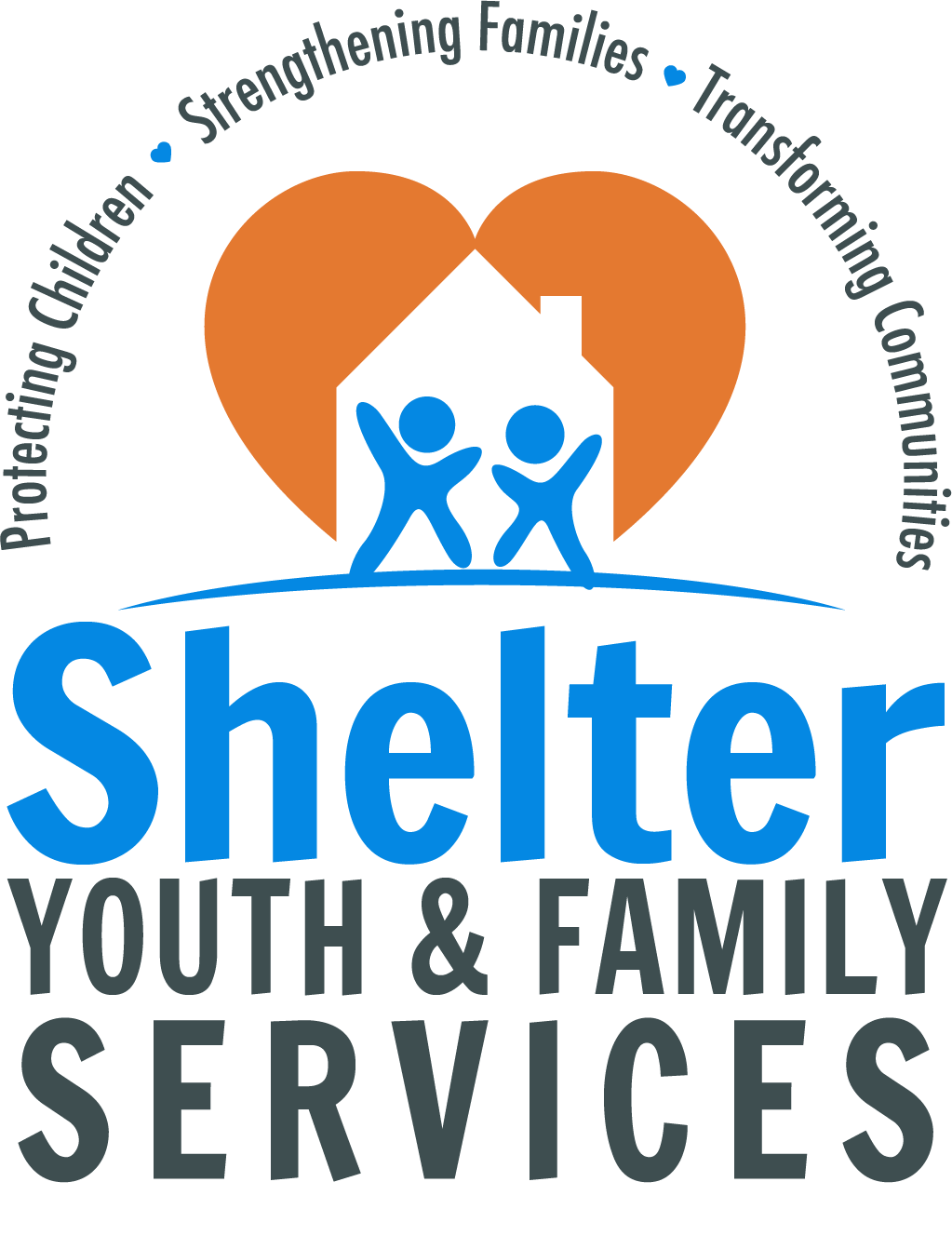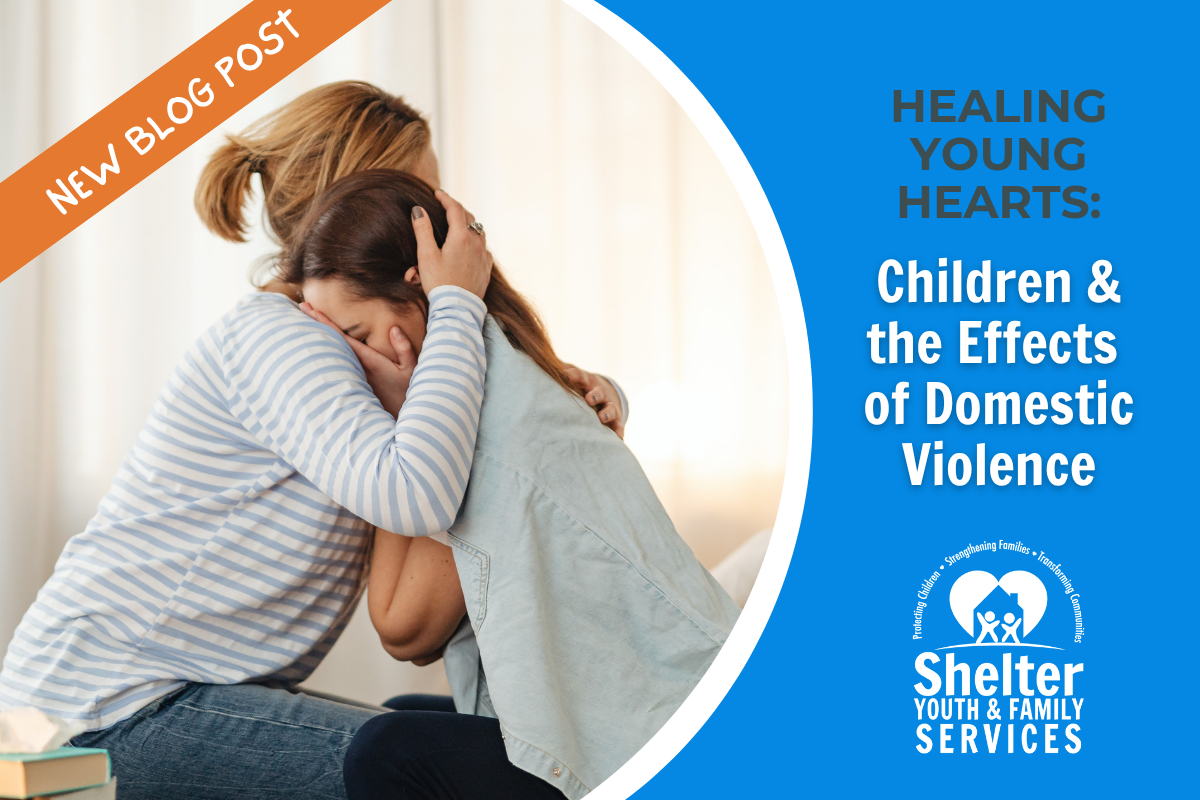October is Domestic Violence Awareness Month and a time to bring attention to an issue that impacts millions of individuals and families each year, including many of the youth we support at Shelter Youth & Family Services.
“Domestic violence impacts the entire family system,” says Nicole Kawa, Shelter’s recently promoted Clinical Director and a Licensed Clinical Professional. She explains, “Children who witness abuse are significantly impacted, even if they are not the direct target. They may experience PTSD, emotional struggles, developmental delays, and even carry forward patterns of abuse into their own relationships later in life.”
At Shelter, the clinical team plays a critical role in helping children and families heal from the trauma of domestic violence. Nicole believes therapy can provide a safe and structured path forward.
“All of our clinicians are trained in Trauma-Focused Cognitive Behavioral Therapy (TF-CBT), helping children and caregivers process trauma, rebuild self-worth, and learn healthy coping skills.” Some staff also bring specialized training in domestic violence treatment for even greater support.
In cases of domestic violence, Shelter’s counselors and caseworkers work in tandem to first establish safety for the children and adults. They then provide resources for the adults to complete a variety of classes such as parenting, domestic violence (victim or perpetrator) or substance use, while helping them find a safe and stable place for the family to stay.
Nicole recently counseled a mother who was the survivor of domestic violence. She helped the mother process what she learned in her classes, work through her own family trauma, and adjust to life as a single parent. Over time, she was able to separate from her abusive partner and create a safe environment for her children, and ultimately, her daughters were able to return home. “Helping this family rebuild their life in safety was incredibly powerful,” says Nicole.
Friends, family, and community members are often the first line of support for someone experiencing abuse. Nicole encourages people to watch for warning signs: unexplained injuries explained away as “accidents,” sudden withdrawal from friends and family, changes in temperament or self-esteem, needing “permission” to spend money or see others, or dressing in ways that may conceal injuries.
“These are just a few examples,” Nicole shares. “Domestic violence isn’t always obvious, but the signs are often there if we take the time to notice.”
Part of raising awareness is breaking down common misconceptions. Nicole emphasizes that domestic violence affects men, as well as women, and can be more than physical abuse; it can be emotional, financial, or psychological.
Above all, Nicole wants survivors to know that they are not alone, and help is available. “If someone discloses abuse to you,” she says, “validate their feelings, assist them in finding a safe and secure place, and encourage them to contact the Domestic Violence Hotline at (877) 863-6338.”
Learn more about Shelter’s Clinical Program or call Shelter’s 24-hour referral line 847.255.8060 for support.




